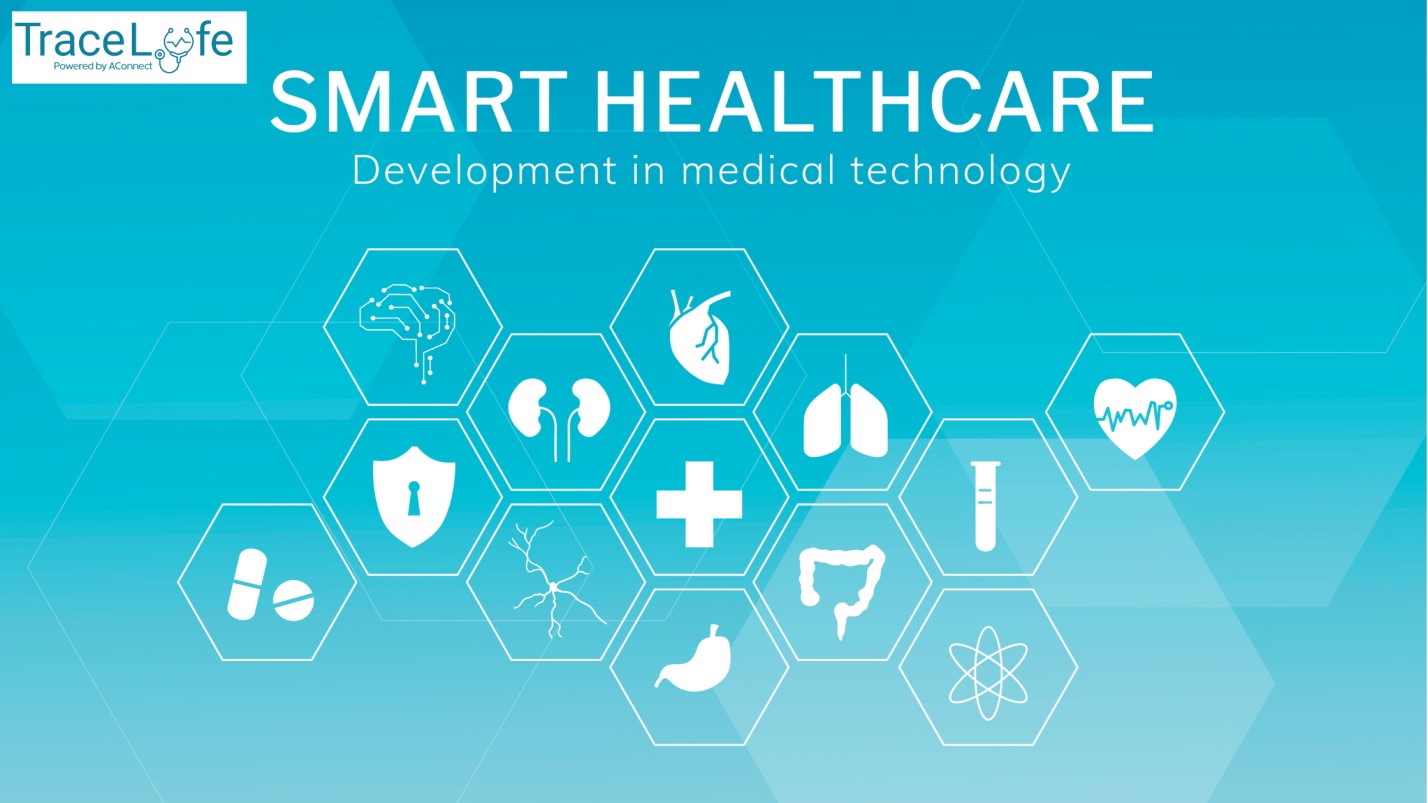“There is no alternative to Digital Transformation. Visionary companies will carve out new strategic options for themselves – those that don’t adapt will fail.”
~ Jeff Bezos (Founder of Amazon)
Everything is available digitally, so why does the healthcare industry stay far behind? Right? Digital Health is the foremost thing that we should give utmost importance. The government also understands it. That’s why; National Health Authority (NHA) has already launched Ayushman Bharat Digital Mission (ABDM) to provide digital health services to the country’s citizens.
Here, by digital health, we mean an intersection between technology and healthcare. Digital health applies digital transformation to the healthcare sector, incorporating software, hardware and services.
Why digital health is important? Digital health can be a boon to prevent disease and lower healthcare costs while helping patients monitor and manage chronic conditions. It can also tailor medicine for individual patients. Digital healthcare software/tools/system gives healthcare providers an extensive view of patient health by significantly increasing access to health data and giving patients greater control over their health. The result is increased efficiency and improved medical outcomes.
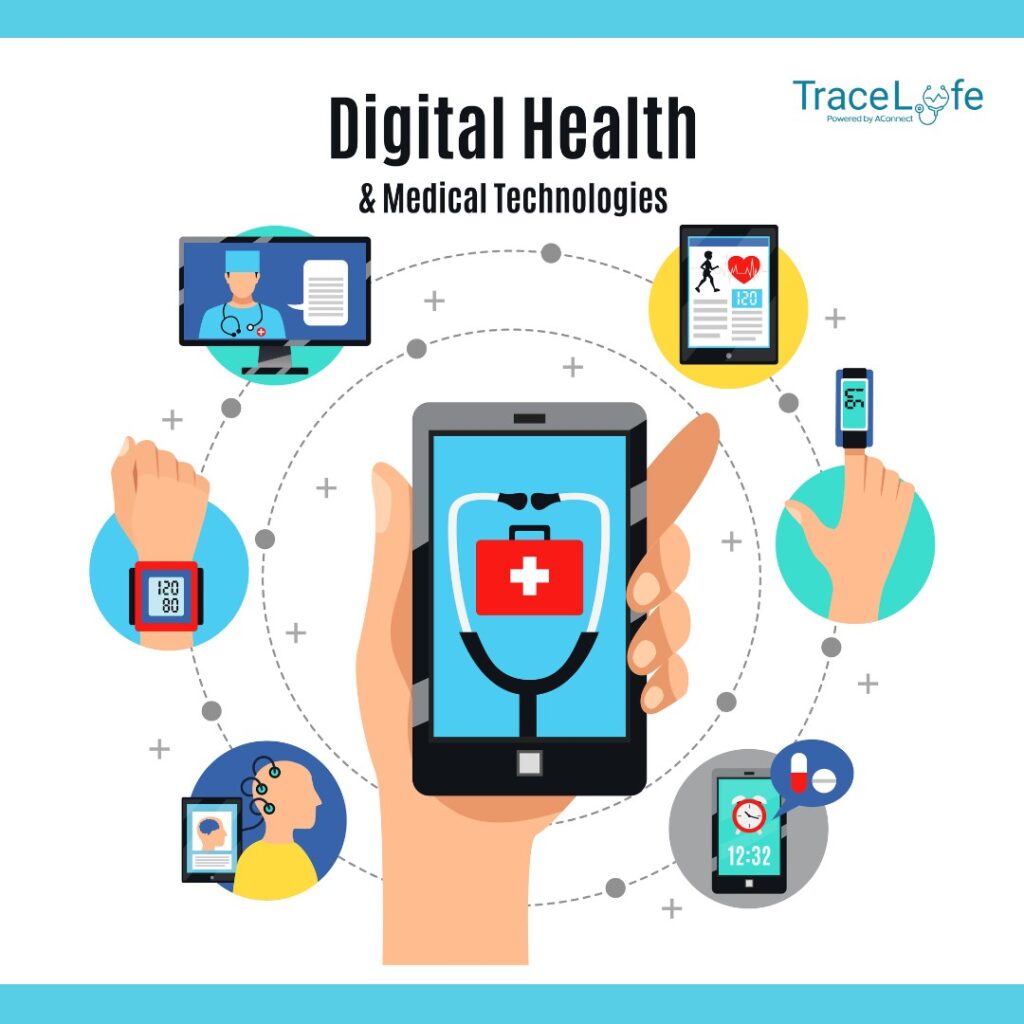
So, all health facilities should adopt the government initiative by becoming a part of the Ayushman Bharat Digital Mission (ABDM) launched by NHA. It’s time to use the ABDM compliance system.
Let’s know in detail what ABDM is and how important it is for the healthcare industry.
What is ABDM?
Ayushman Bharat Digital Mission (ABDM) is a powerful mission for the digital transformation of the healthcare sector. The program aims to provide better healthcare services to all citizens, especially those in rural and underserved areas with digital technologies. It creates a network of digital health services that all citizens can access through various channels, including mobile phones, tablets, and computers.
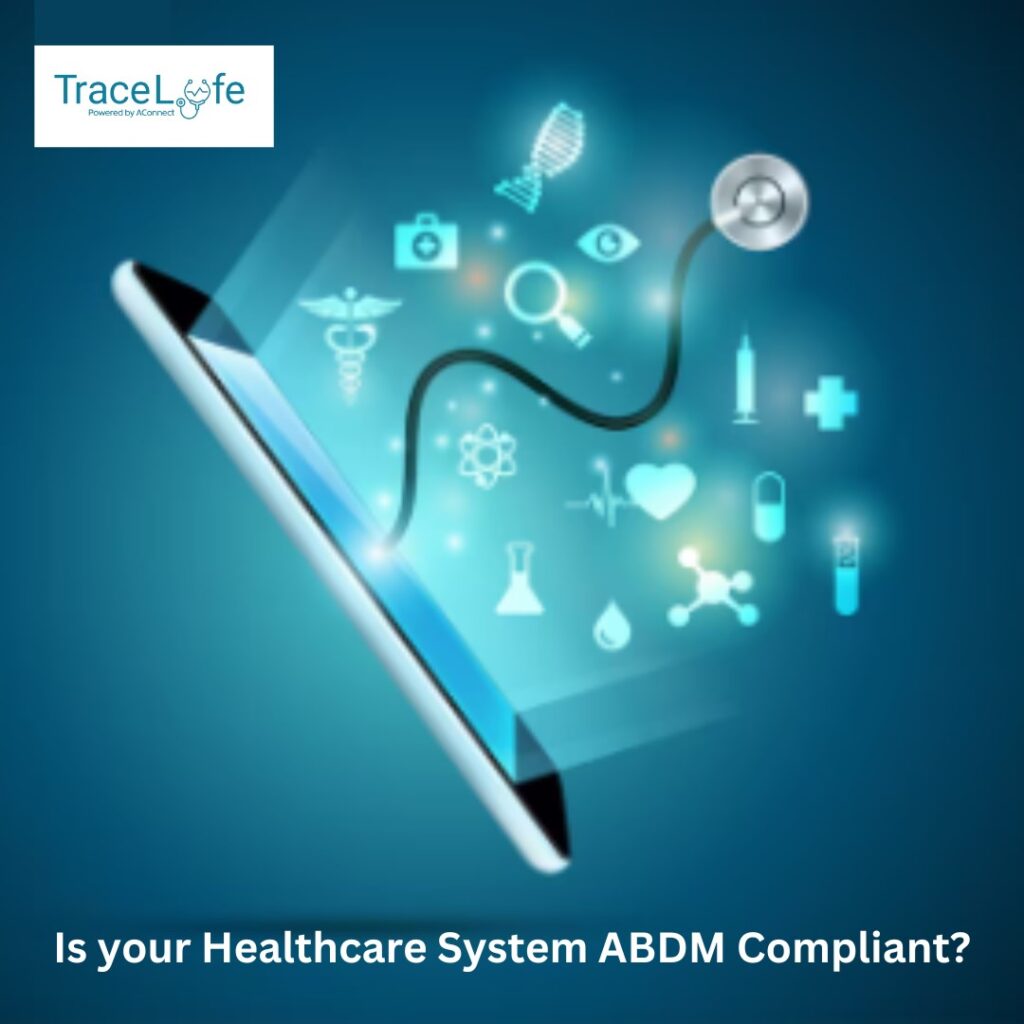
These services include telemedicine, electronic health records, and other digital health tools that can help improve healthcare service delivery and make it more accessible to all citizens. In short, it will bridge the existing gap among different stakeholders of the Healthcare ecosystem through digital highways.
What is ABDM Digital Ecosystem? We know digitalization helps the healthcare industry create, store, access, share and analyze records more efficiently. Further, it also helps in proper clinical decision-making, public health and research. However, this health ecosystem is immensely fragmented with hundreds of players and different types of standards.
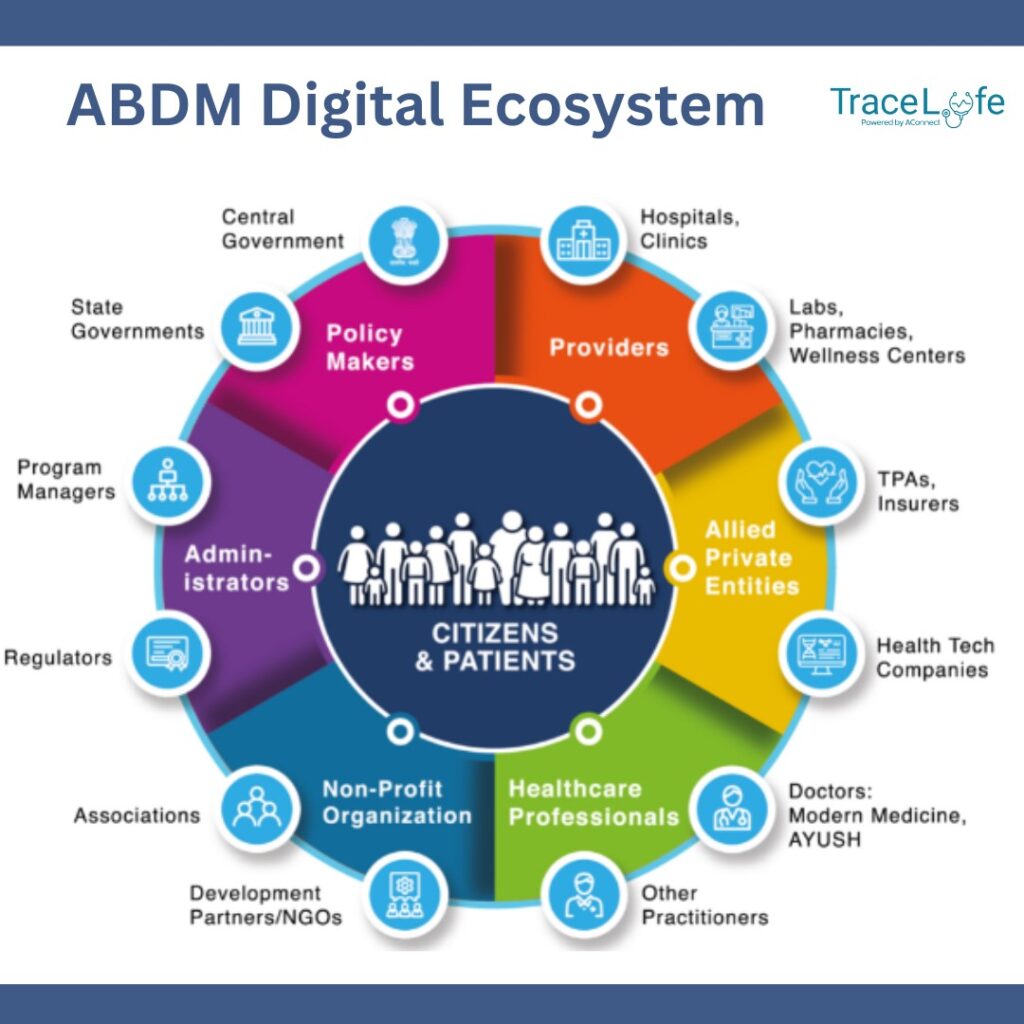
Without any adequate integrated system, it is really very tough to share the information from one healthcare provider (hospitals, doctors, etc.) to another healthcare provider or from a stakeholder to another stakeholder irrespective of how strong their digital system is. It became a big hurdle as it is not allowing the benefit of digitization to reach citizens and healthcare providers. Therefore, it requires a fast secure system to bring all these different and disparate digital health systems together to create an integrated system of systems i.e. ecosystem. Thus, ABDM intends to create the National Digital Health Ecosystem (NDHE) for India.
How it can help in digital transformation?
The healthcare sector needs to be ABDM compliant as it improves the availability and equity of health services in India. Through the integrated approach of communication and information technologies such as the internet and mobile phones, ABDM creates a “citizen-centric” approach to healthcare. Various other points support why any hospital/clinic should be ABDM compliant.
- It creates registries of clinical facilities, healthcare professionals, health workers, medications, and pharmacies to create a single source of truth.
- Based on informed consent, it creates personal health records that individuals and healthcare professionals can obtain.
- Encouraging the use of clinical decision support systems by health professionals and practitioners.
- Promoting better health management with health data analytics and medical research.
- Supporting the efforts of public health authorities in the private sector to participate in the ABDM.
Ensuring that health services can be accessed and used nationally, regardless of location.
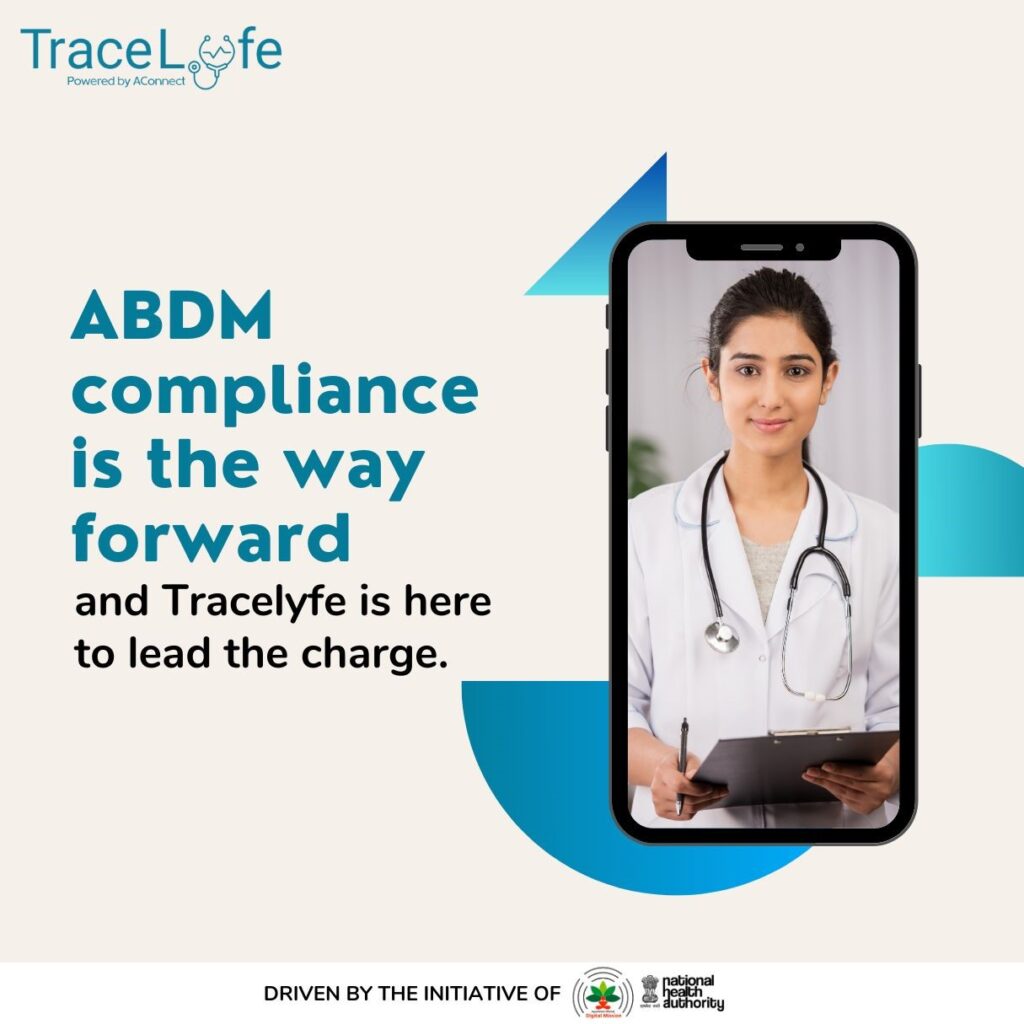
If you are a healthcare provider, it’s time to become ABDM compliant. It lets you serve your best for your patients and be the first choice for their health.
For more information on ABDM and how to become ABDM compliant, connect us at Tracelyfe.

